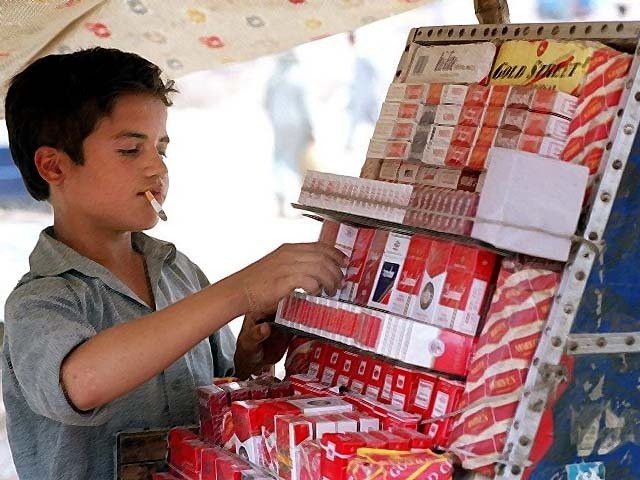A parallel economy is one that runs alongside a formal or official economy. The goods and services that form a parallel economy are not brought under the tax net, hence the government tends to be the loser at the end of the day. Imagine this, there are a total of 10 registered automobile manufacturers in the country that pay Rs300bn in taxes. However, if you probe a little further, you will realise that these aren't the only manufactures at all. There are about 20 more manufacturing operations in the country that are neither documented nor are their goods taxed. So even if these operations are earning billions, the government and masses are losing out in billions of taxes.
Hence, one may ask, where lies the solution? What must a government do (or equally important, not do) in such a situation? Take the example of Pakistan. The country’s already battered economy is currently reeling from the Covid-19 outbreak that shuttered shopping malls, small and large businesses and dealt a huge blow to the employment of thousands across the country. Prime Minister Imran Khan, in a bid to mitigate the loss set up a Coronavirus Relief Fund. Though the fund, as per government estimates, has amassed Rs4bn rupees, a larger amount of money can be deposited in the national kitty in such trying times if illegal businesses are brought under the tax net.
Take, for instance, the cigarette manufacturers in Pakistan. According to news reports, cigarette manufacturers in Pakistan contribute a whopping R115bn rupees in taxes, out of which Rs113.5bn are paid by two multinational companies. The market share of these multinational cigarette manufacturing companies currently stands at roughly 60%, while several local cigarette manufacturing brands have the remaining 40%. However, in the 2019-2020 tax year, they contributed only Rs1.5bn in taxes. Which roughly accounts for 2% of the taxes from the tobacco industry. The Federal Bureau of Revenue (FBR) and other relevant authorities have estimated that by not bringing these local cigarette manufacturers under the tax net, the government is losing out on an estimated Rs45bn per year.
If the government wants to improve the tax revenue from the tobacco industry, the Ministry of National Health Services, Regulations and Coordination with the help of the FBR, will have to take appropriate measures to monitor the sale and distribution of 64 million illicit cigarettes in Pakistan. These illicit cigarette manufacturers are not only evading taxes, and as a result depriving the country of billions of rupees in revenue, but are also violating other regulations put in place by the government of Pakistan.
For example, the minimum price set for a packet of 20 cigarettes is Rs62.76. No cigarette brand is allowed to sell a packet of cigarettes below this minimum selling price. However, at least seven illicit cigarette manufacturing brands are selling their products in the price range of Rs20-50 per packet. Furthermore these illicit manufacturers violate other laws in place for tobacco related advertising and even target youth while offering illegal monetary incentives and lucky draws.
On the other hand, let’s talk a little about what the government should not do. With the economy in shambles and the government looking to collect additional revenue, it would be unfair and unfortunate if the authorities decide to levy additional taxes on law-abiding cigarette manufacturers who have already been paying their taxes. This will not be beneficial for business and also, for the government as well.
For one, levying more taxes on business enterprises that are already playing by the rules would seem more like a punishment than an encouragement. It makes no sense. Secondly, if the government were to levy taxes on these legal entities operating within the ambit of the law, the demand for cigarette smoking will not decrease, contrary to public and the government’s opinion. In a market where you have comparatively cheaper cigarettes as substitutes, the consumers will shift to the local, illicit brands because those cigarettes cost low. Hence, this will not achieve the government’s aim of reducing smoking in the country. Rather, it would shift consumers to those brands that are already not paying taxes.
Hence, it is high time that the government brings these non-tax paying cigarette and car manufacturers under the tax net so that Pakistan’s economy can get a much needed boost during the Covid-19 crisis.
Why Pakistan needs to tax the parallel economy during Covid-19
Furthermore illicit manufacturers violate other laws in place for tobacco related advertising and even target youth



COMMENTS
Comments are moderated and generally will be posted if they are on-topic and not abusive.
For more information, please see our Comments FAQ